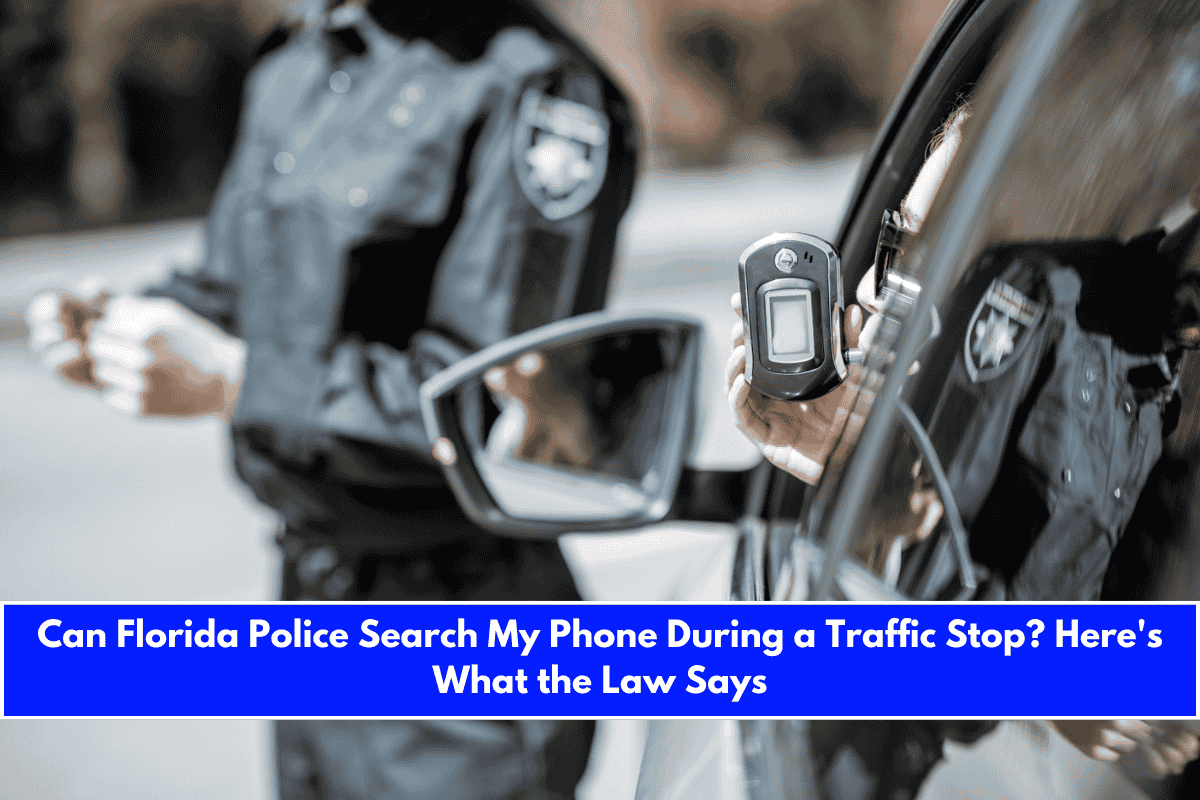When you’re pulled over in Florida, you might wonder if police can search your cell phone. The answer is clear: in almost all cases, police cannot search your phone during a traffic stop without your consent or a warrant.
Your Phone Is Protected by the Fourth Amendment
The U.S. Supreme Court’s decision in Riley v. California established that cell phones are not like other objects in your car—they hold vast amounts of private information, so searching them generally requires a warrant.
Florida law follows this precedent: police cannot scroll through your phone, open apps, or access your data without a warrant, even if you are pulled over or arrested.
What Happens During a Traffic Stop?
- Police May Ask to Search Your Phone: Officers sometimes ask drivers for permission to search their phone. You have the right to refuse this request. If you do not give consent, police cannot legally search your phone without a warrant.
- No Warrant, No Search: Unless there is a warrant signed by a judge, police cannot access your phone’s contents during a routine traffic stop. This includes situations where you are pulled over for texting and driving.
- You Cannot Be Forced to Unlock Your Phone: Police cannot compel you to unlock your phone or provide your password during a traffic stop without a warrant.
Exceptions: When Can Police Search Without a Warrant?
There are very limited exceptions:
- Consent: If you voluntarily allow police to search your phone, they do not need a warrant. Never feel obligated; you can always refuse.
- Exigent Circumstances: In rare emergencies—such as imminent threats to life or the risk of evidence being destroyed—police may be able to search without a warrant, but these situations are exceptional and subject to later court review.
- Plain View: If incriminating evidence is visible on your phone’s unlocked screen (for example, if a message pops up while the phone is in plain sight), police may be able to use that information, but they still cannot search further without a warrant.
What If Police Search Your Phone Illegally?
If police search your phone without your consent or a warrant (and no exception applies), any evidence they find is likely inadmissible in court under the “exclusionary rule.” You should contact a lawyer immediately if this happens.
Key Takeaways
- You have the right to refuse a search of your phone during a traffic stop in Florida.
- Police need a warrant or your explicit consent to search your phone.
- Never physically resist a search; calmly state you do not consent and consult an attorney if your rights are violated.
Unless you give permission or police have a warrant or a rare emergency exists, Florida police cannot search your phone during a traffic stop. Protect your privacy by knowing and asserting your rights.
Sources:
- https://www.rossenlawfirm.com/blog/if-im-pulled-over-for-texting-and-driving-can-a-cop-search-my-phone-no-says-fort-lauderdale-criminal-defense-attorney/
- https://www.payerlawgroup.com/blog/what-are-my-rights-when-im-pulled-over-in-florida/
- https://www.aclufl.org/en/press-releases/florida-supreme-court-says-police-must-get-warrant-cell-phone-location-tracking
- https://www.tampabaycriminaldefenselawyerblog.com/police-investigatory-stops-reasonable-suspicion-and-fourth-amendment-search-and-seizure-law-in-florida/
- https://www.valcarcellaw.com/blog/can-police-search-your-phone-during-an-arrest-in-florida/











Leave a Reply